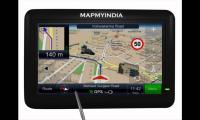Esri India, CKS Partner to Train 1 Lakh Students on Geospatial Tech
Esri India and Centre for Knowledge Sovereignty partner to train 1 lakh students annually on geospatial technologies, encouraging research and innovation.
New Delhi, Dec 11 (PTI) GIS technology company Esri India and public policy think tank Centre for Knowledge Sovereignty have partnered to train 1 lakh students annually on geospatial technologies and encourage them to innovate, top officials of both entities said on Monday.
Esri India managing director Agendra Kumar said the objective of the "Masters Mentors Geo-Enabling Indian Scholars (MMGEIS)" is to encourage a culture of research and innovation by giving them exposure to technology at a very young age.
"There is a need to increase research and development activities to increase India's IPR share at the global level. Through MMGEIS, we want to give scholars exposure to geospatial technology to inculcate a research mindset and enable them to build solutions around it," he said.
Former Indian Space Research Organisation (ISRO) Chairman Kiran Kumar, former India Meteorological Department KJ Ramesh, and Director General and former Surveyor General of India Girish Kumar will be master mentors of the programme.
Centre for Knowledge Sovereignty (CKS) will reach out to academia for shortlisting scholars from class 8 onward for the programme.
"We plan to train 1 lakh students every year from schools and colleges across India. The programme will be conducted online. Initially, a couple of thousands of students will be trained through video courses online, then it will be expanded to include a larger student base. Students can approach us through the website, and they will be given access to the course," Kumar said.
He said that around 60,000-80,000 IPR ((Intellectual Property Rights) applications are filed every year from India, which is very low compared to over 16 lakh IPR applications filed by China.
CKS Secretary Vinit Goenka said the number of IPRs granted is lower than the number of applications.
"Even if IPRs are granted, then commercialisation of those IPRs is very important otherwise, it serves only academic purposes. Through MMGEIS, we will train students for commercialisation of their IPR as well," he noted.
Kiran Kumar said that in the last one decade, there have been several remarkable developments like Chandrayaan-3 and electronics manufacturing, but if India has to be a top economy by 2047, then research culture in the country and IPR generation will be vital to achieve it.
Esri India managing director Agendra Kumar said the objective of the "Masters Mentors Geo-Enabling Indian Scholars (MMGEIS)" is to encourage a culture of research and innovation by giving them exposure to technology at a very young age.
"There is a need to increase research and development activities to increase India's IPR share at the global level. Through MMGEIS, we want to give scholars exposure to geospatial technology to inculcate a research mindset and enable them to build solutions around it," he said.
Former Indian Space Research Organisation (ISRO) Chairman Kiran Kumar, former India Meteorological Department KJ Ramesh, and Director General and former Surveyor General of India Girish Kumar will be master mentors of the programme.
Centre for Knowledge Sovereignty (CKS) will reach out to academia for shortlisting scholars from class 8 onward for the programme.
"We plan to train 1 lakh students every year from schools and colleges across India. The programme will be conducted online. Initially, a couple of thousands of students will be trained through video courses online, then it will be expanded to include a larger student base. Students can approach us through the website, and they will be given access to the course," Kumar said.
He said that around 60,000-80,000 IPR ((Intellectual Property Rights) applications are filed every year from India, which is very low compared to over 16 lakh IPR applications filed by China.
CKS Secretary Vinit Goenka said the number of IPRs granted is lower than the number of applications.
"Even if IPRs are granted, then commercialisation of those IPRs is very important otherwise, it serves only academic purposes. Through MMGEIS, we will train students for commercialisation of their IPR as well," he noted.
Kiran Kumar said that in the last one decade, there have been several remarkable developments like Chandrayaan-3 and electronics manufacturing, but if India has to be a top economy by 2047, then research culture in the country and IPR generation will be vital to achieve it.
You May Like To Read
TODAY'S MOST TRADED COMPANIES
- Company Name
- Price
- Volume
- Vodafone-Idea-L
- 11.65 (+ 3.56)
- 106772451
- Alstone-Textiles
- 0.28 ( -3.45)
- 44187760
- Mangalam-Industrial
- 0.88 ( -2.22)
- 39177573
- Sunshine-Capital
- 0.27 (+ 3.85)
- 35956340
- GMR-Airports
- 104.40 (+ 6.37)
- 30453005





